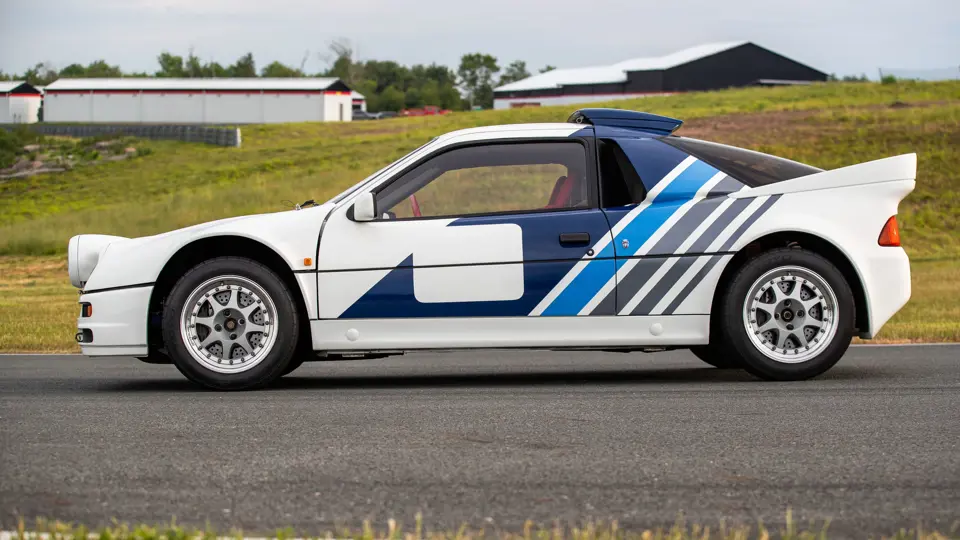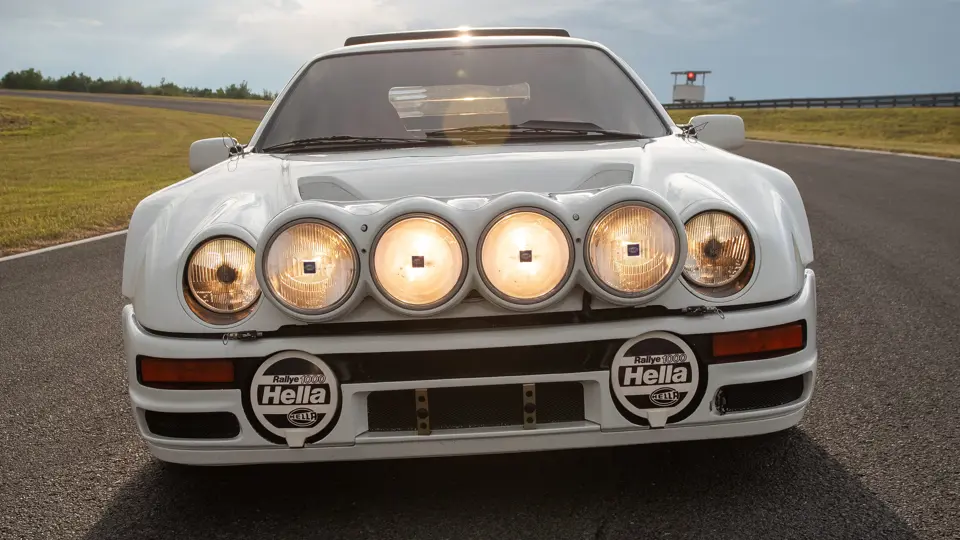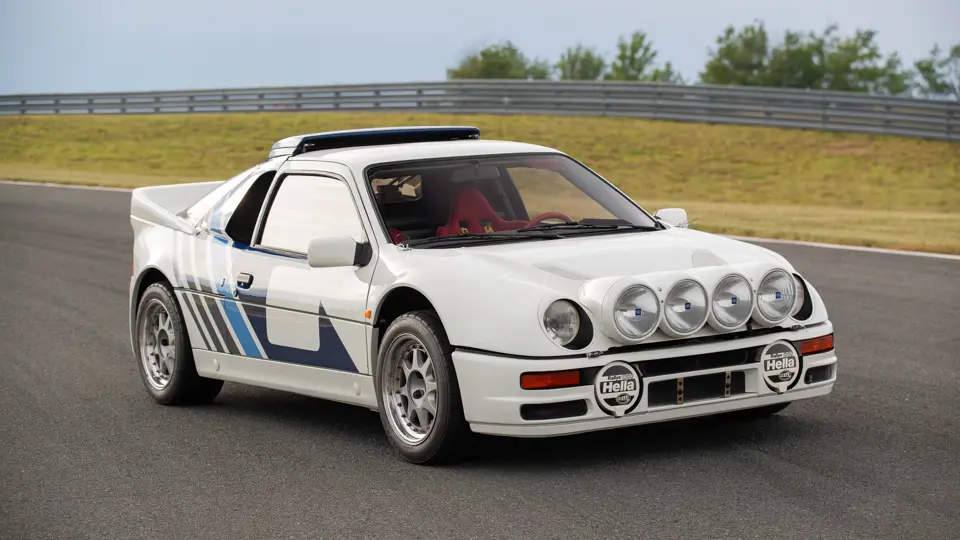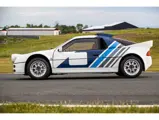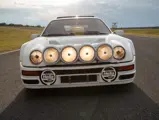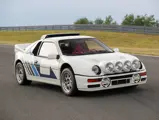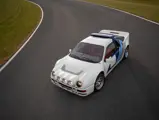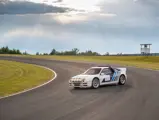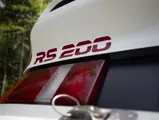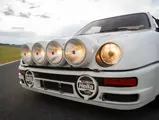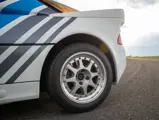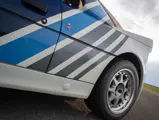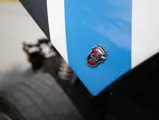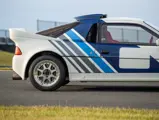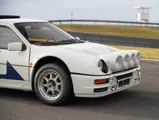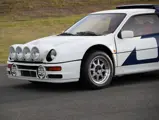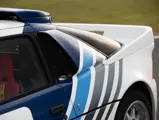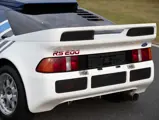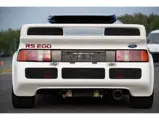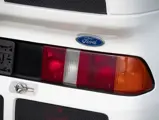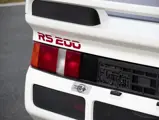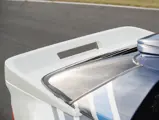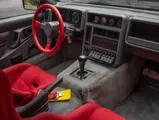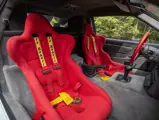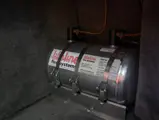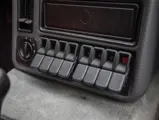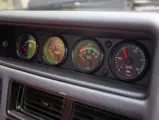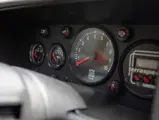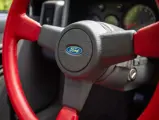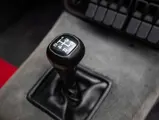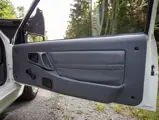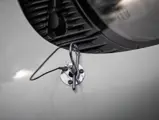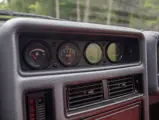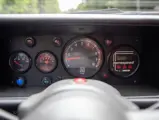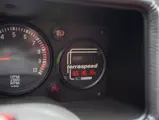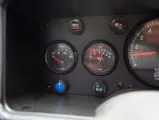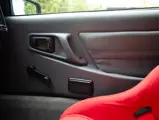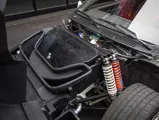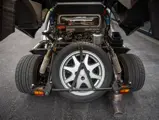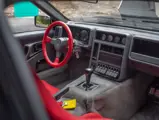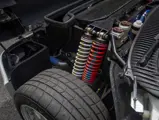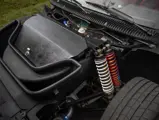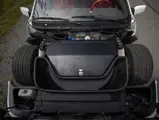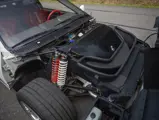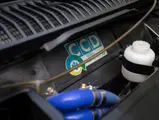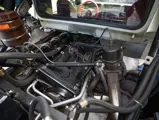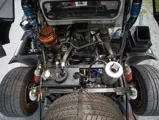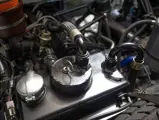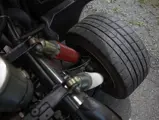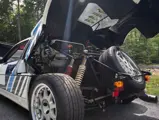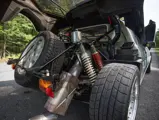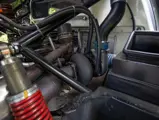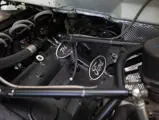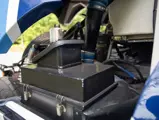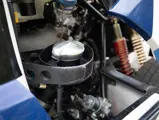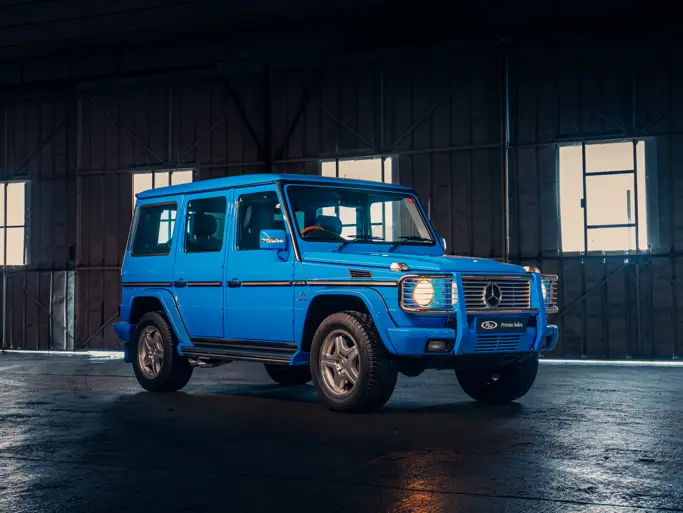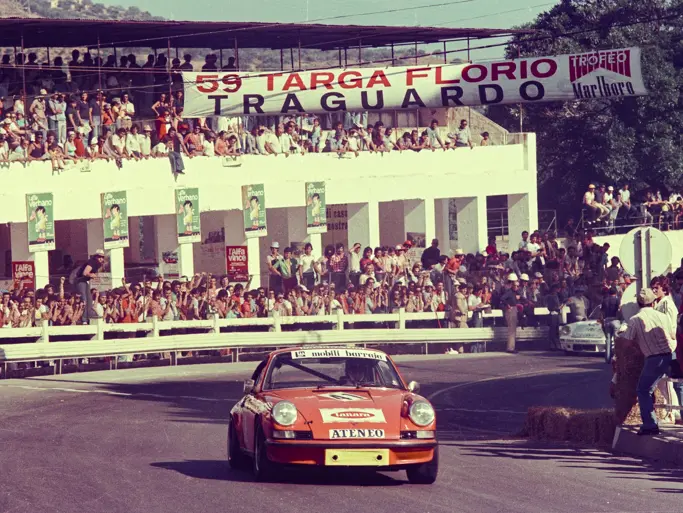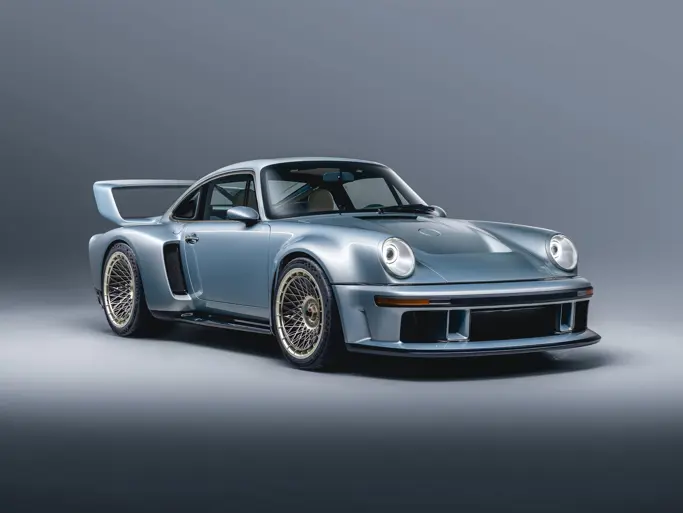
1986 Ford RS200 Evolution
{{lr.item.text}}
$615,500 USD | Sold
Offered from The World Rally Classics Collection
{{bidding.lot.reserveStatusFormatted}}
- One of just 24 RS200 Evolutions constructed; features the uprated 2.1-liter Ford BDT engine producing upwards of 600 hp
- Imported into the US by the renowned collector and Colorado Grand founder, Bob Sutherland
- In long-term, single ownership between 1989 and 2017, with just two further owners since
- Beneficiary of a complete engine rebuild by UK-based RS200 expert Geoff Page; recently upgraded with Tilton carbon twin-plate clutch for improved drivability
- Presented in wonderfully original condition wearing factory-correct livery, and accompanied by its rare original factory toolkit
In the context of the World Rally Championship, the adoption of Group B regulations for 1982 afforded designers a greater degree of technical latitude than had ever been the case before—or indeed, has been since. Furthermore, homologation was conditional upon construction of just 200 road-legal variants of any prospective design. This figure was sufficiently modest to both attract manufacturer interest and to ensure the development of some of the most outrageous “homologation specials” ever produced.
Unlike rivals Audi, Lancia, and Peugeot—all of whom developed cars bearing at least some external similarity to cars from their production ranges—Ford opted for a bespoke, mid-engined behemoth instead: the RS200. Competitions Director Stuart Turner tasked former BRM, Shadow, and Lotus Formula One designer Tony Southgate with developing the car’s aluminum monocoque chassis and sub-frames, while Chief Engineer John Wheeler coordinated the car’s overall design from Ford’s fabled Boreham headquarters.
A Mountune-developed 1.8-liter four-cylinder turbocharged BDT engine produced around 250 horsepower in road trim and almost 450 in competition, while a Ferguson-engineered drivetrain featured a novel front-mounted five-speed transaxle distributing power to all four wheels. Suspension was via double wishbones and twin coil spring/damper units, while the car was clothed in functional yet attractive bodywork styled by Ghia; its construction was fiberglass on road cars, and Kevlar on those intended for competition.
A protracted homologation process ensured that approval was not forthcoming until 1 February 1986, thereby delaying the RS200’s first WRC appearance until the Swedish Rally later that month. Ironically, a superb 3rd place on debut would remain its best WRC result; 5th in the late-season Lombard RAC Rally was its only other points-scoring finish. Sadly however, the season descended into the most traumatic and controversial in Rallying history. A series of fatal crashes sealed Group B’s fate and ensured the hasty adoption of Group A regulations for 1987.
Ford had intended to campaign their RS200 “Evolution” model in the WRC in 1987, although the emergency rule changes precluded this. However, a batch of existing—and effectively redundant—chassis were produced to Evolution specification, primarily for road use. A new Brian Hart-developed 2.1-liter version of the BDT engine could develop upwards of 600 horsepower, with brakes and suspension uprated accordingly. The resulting performance was astounding; the car’s 0-60 mph time of just 3.07 seconds remained a world record for some 12 years.
One of just 24 Evolution variants constructed, chassis 0084 is believed to have passed through the hands of US RS200 importer Bob Sutherland prior to being sold in 1989 to its first private owner. Remarkably, the car would remain in his custody for the next 28 years, with the majority spent on display at The Auto Collections—the near 800-vehicle automotive museum located in the parking garage of The Imperial Palace Hotel in Las Vegas, Nevada.
Following the museum’s closure in 2017, the car was sold to a Texas-based collector who, despite the car’s minimal mileage, entrusted its engine to former Mountune technician—and RS200 guru—Geoff Page for a full rebuild. The work performed included the fitment of new main and big end bearings, valve springs, piston rings, and big end bolts, as well as a newly rebuilt turbocharger and a new cambelt; this came at a cost of some $14,385. Concurrently, the cooling, braking, and fuel systems were also completely overhauled as a precautionary measure.
In 2019, ownership of the car passed to the consignor, in whose custody it has continued to be used only very sparingly. Indeed, although its original fitment Terraspeed digital speedometer lacks provision for an odometer, it is believed that the car has covered fwer than 500 kilometers from new; an incredibly low figure no doubt facilitated by its extended Nevadan sojourn. Nevertheless, 0084 has been fastidiously maintained by its present custodian, having been upgraded to a new flywheel and Tilton carbon twin-plate clutch as recently as March of this year at a cost of almost $11,000. This clutch upgrade is reported to greatly improve the road tractability of the car, which is famous for its prodigious output and visceral power delivery.
Immaculately presented in factory-correct Ford “Works” colors with contrasting red bucket seats—and accompanied by its rare original tool kit and spare wheel—there can surely be few, if any, more well-preserved and correct RS200 Evolutions than this. Equally at home on the road and on the special stages of the burgeoning historic rallying scene, this titan of the Group B era would be a noteworthy addition to any serious competition car collection—and a guaranteed showstopper in whichever arena it appears in the future.


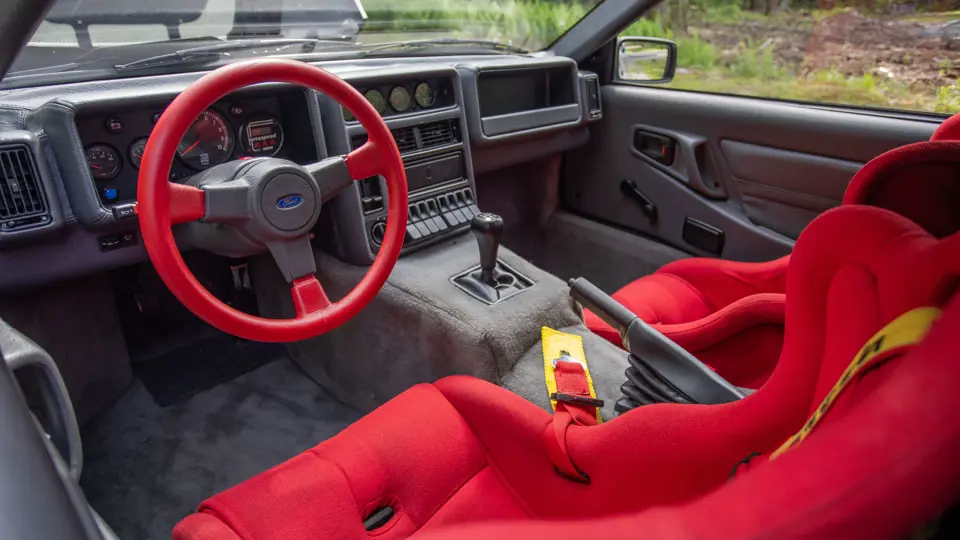

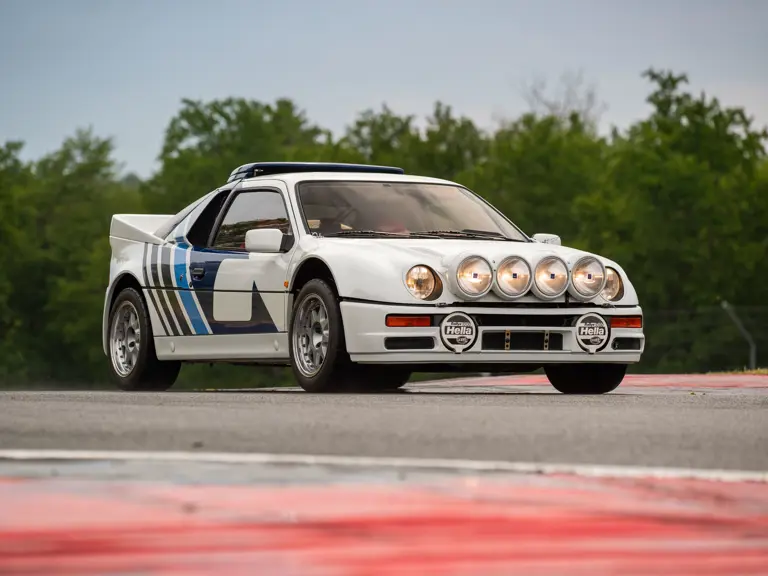
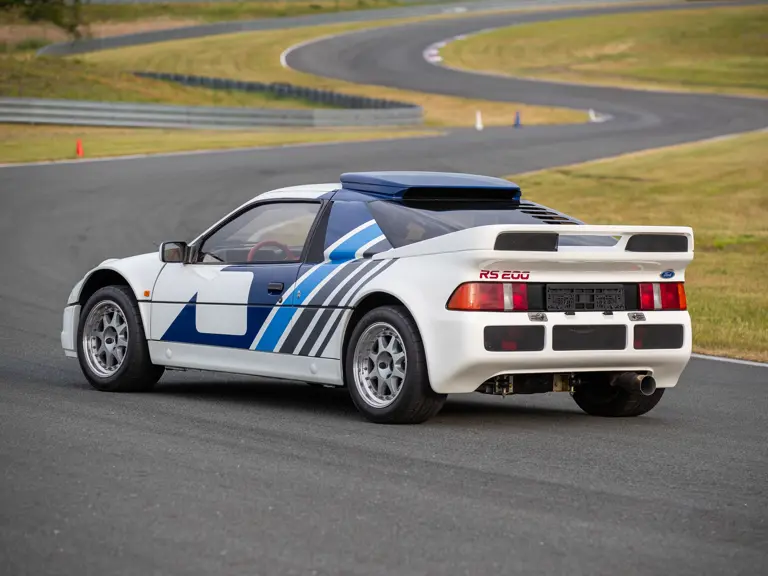
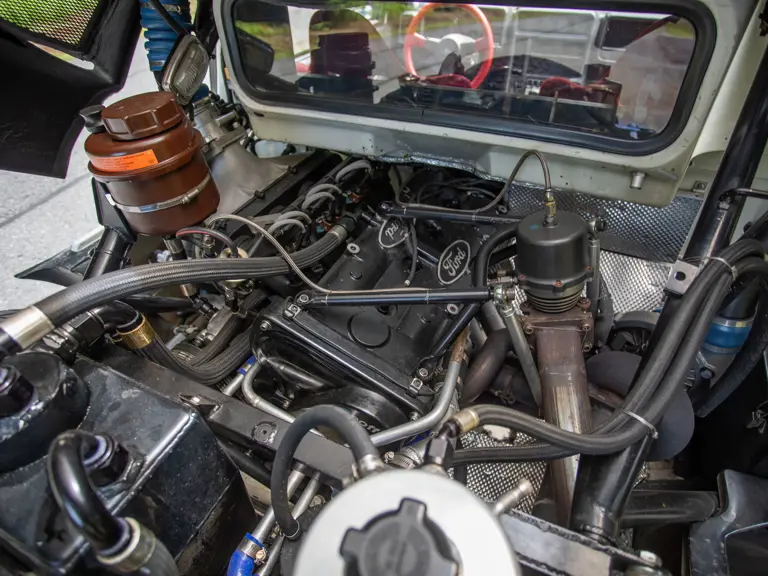
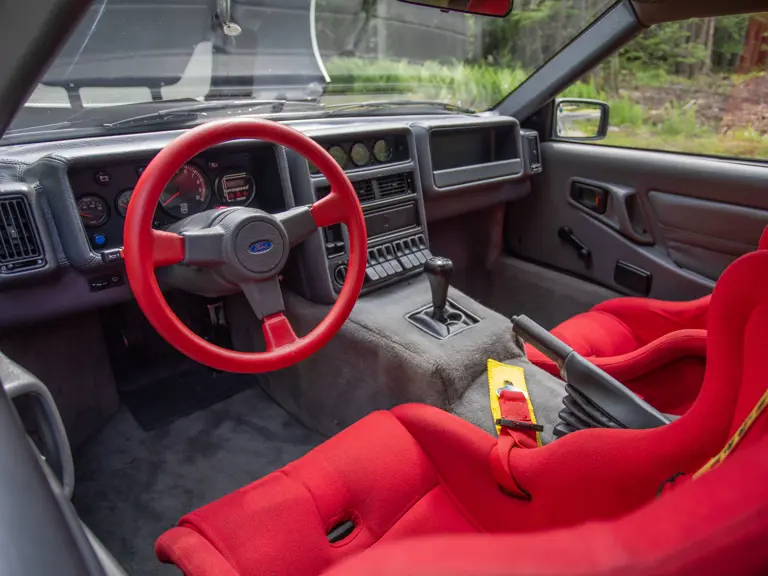
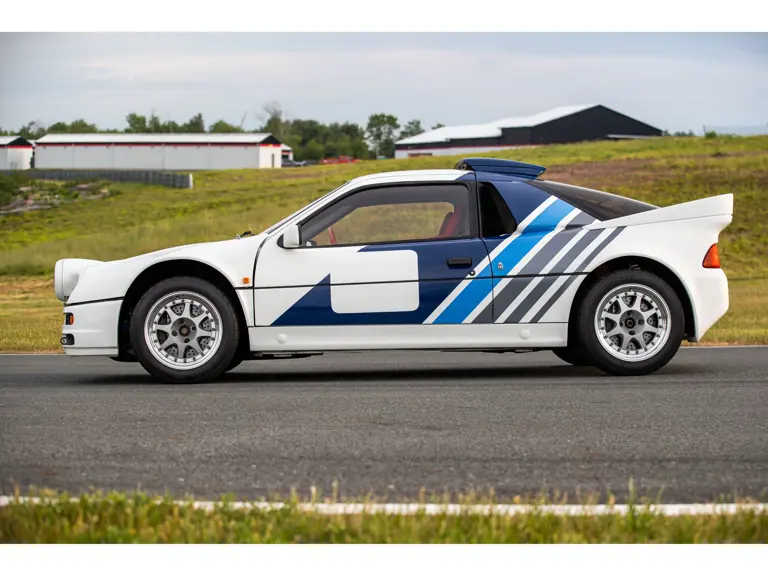
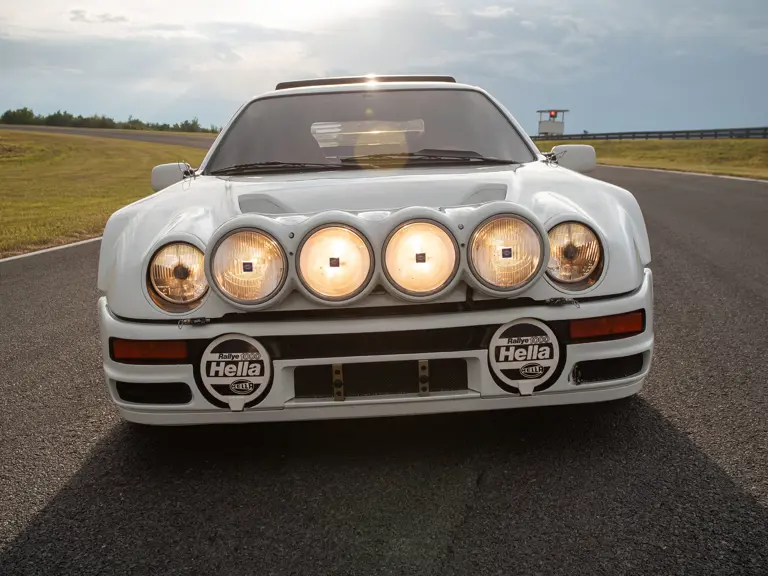
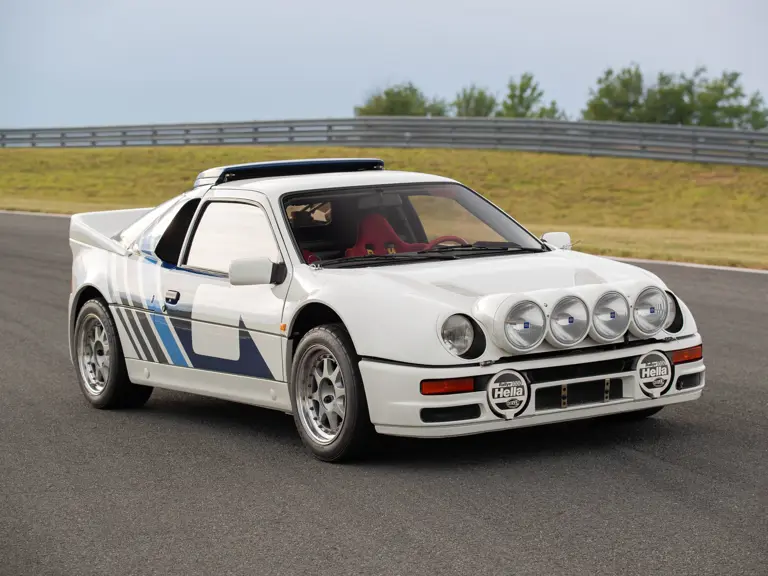
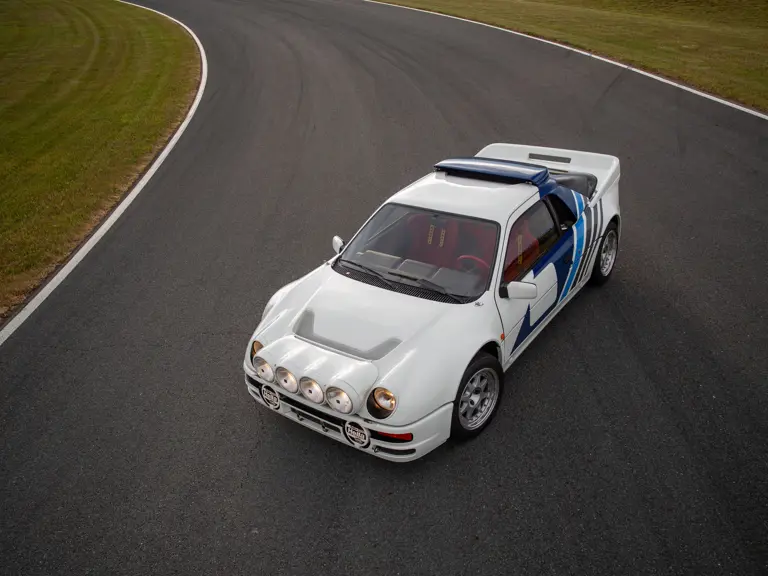
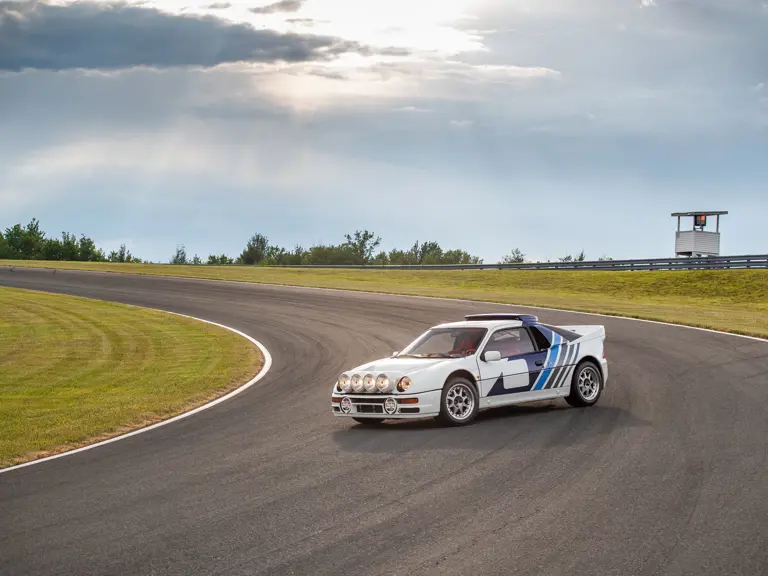
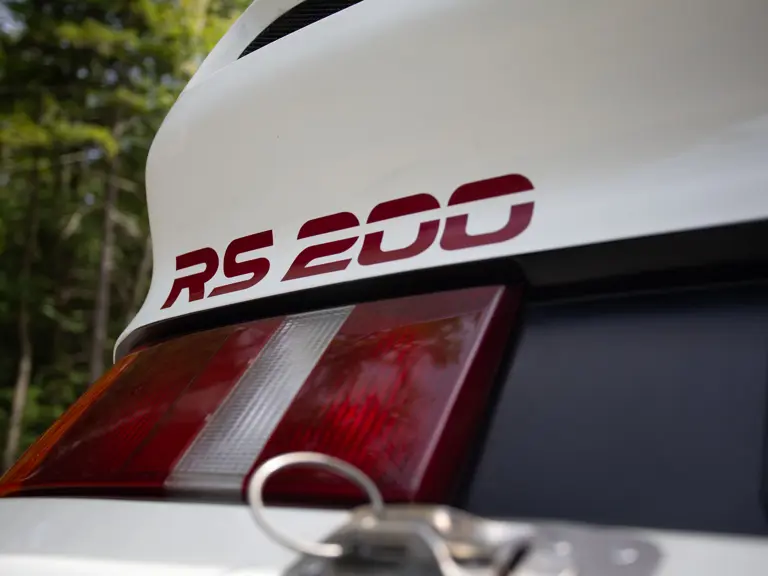
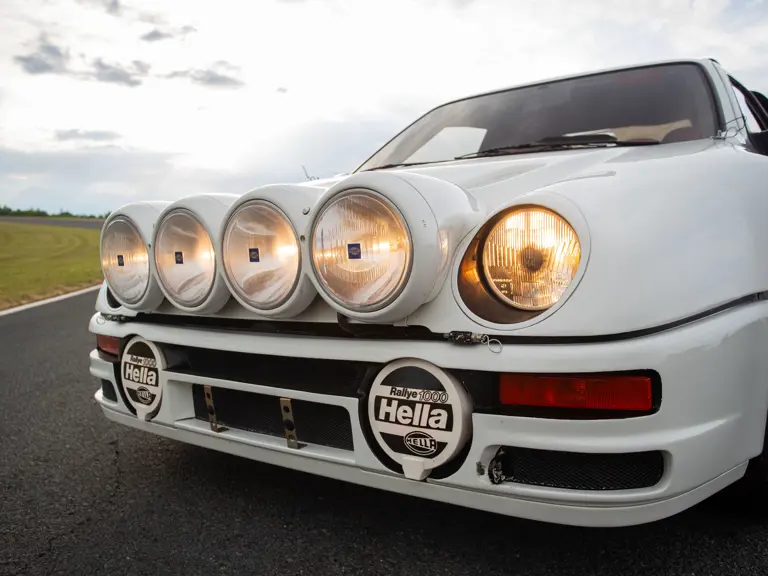
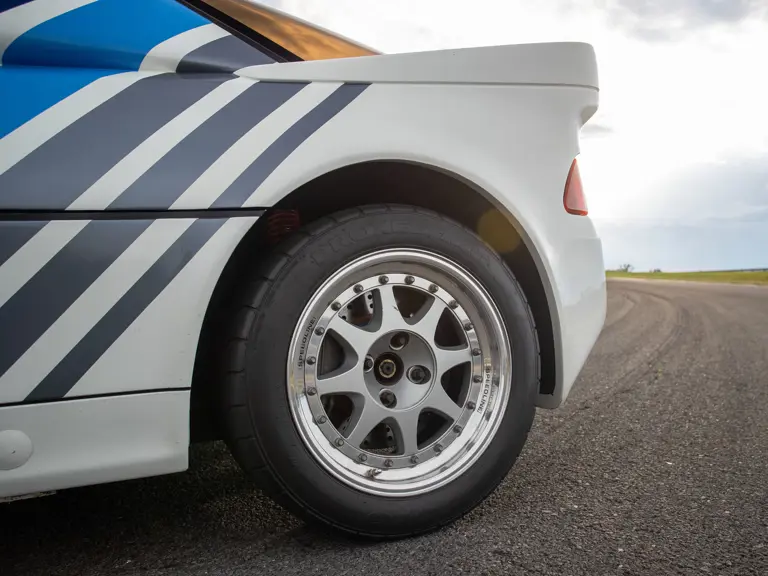
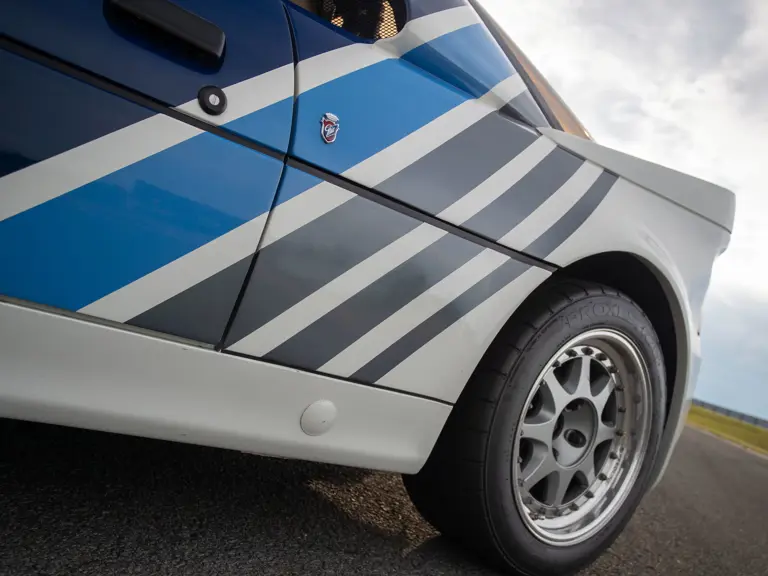
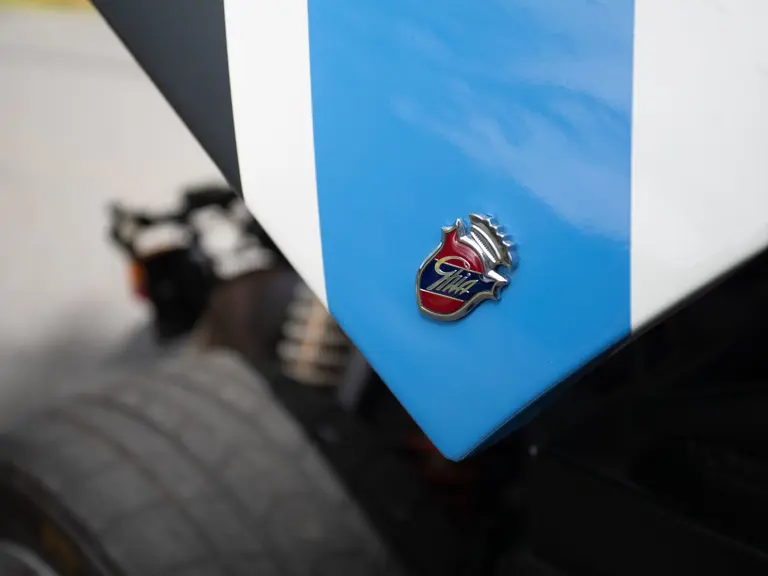
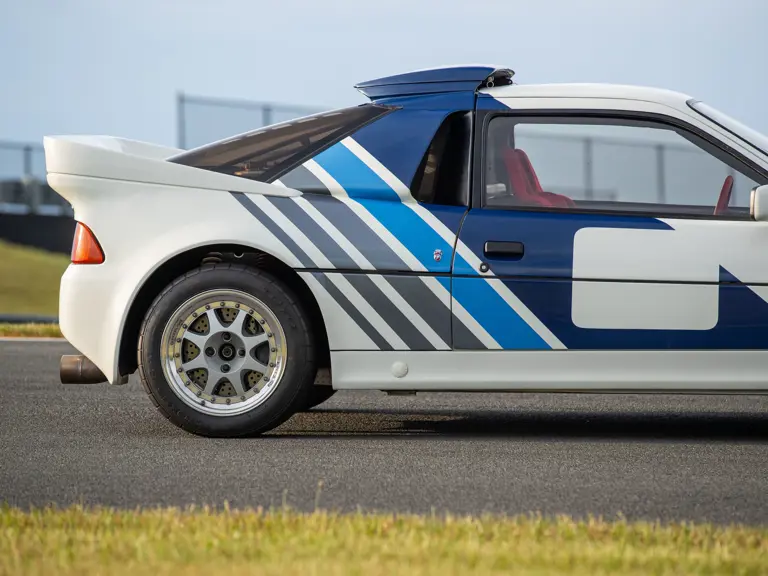
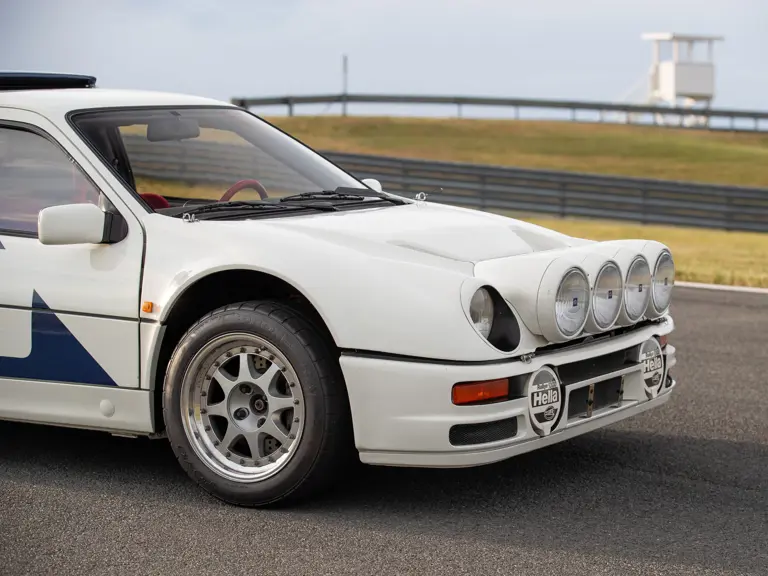
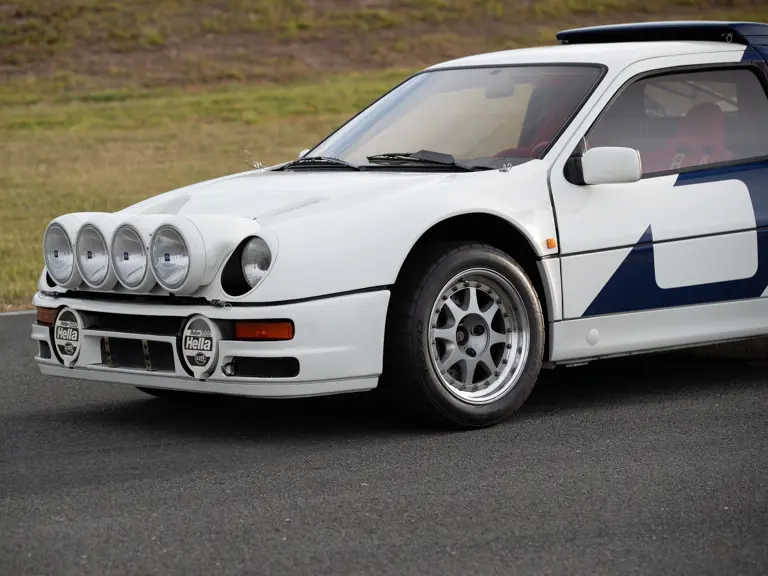
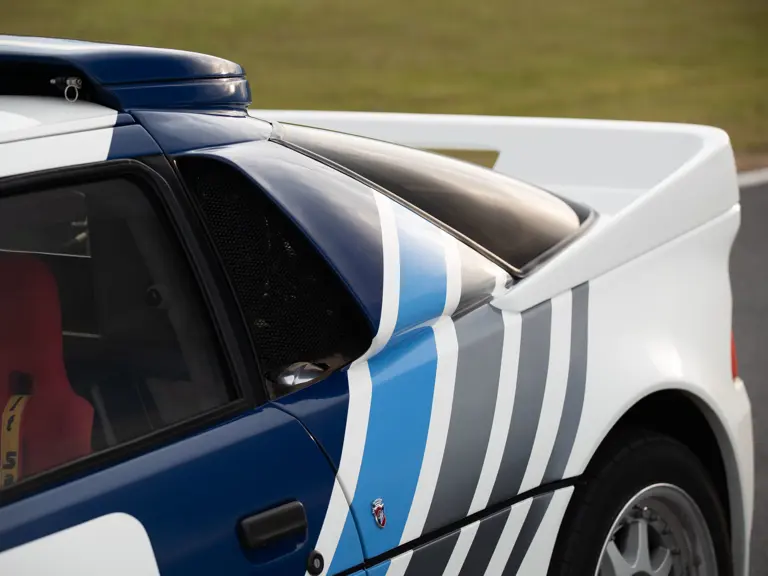
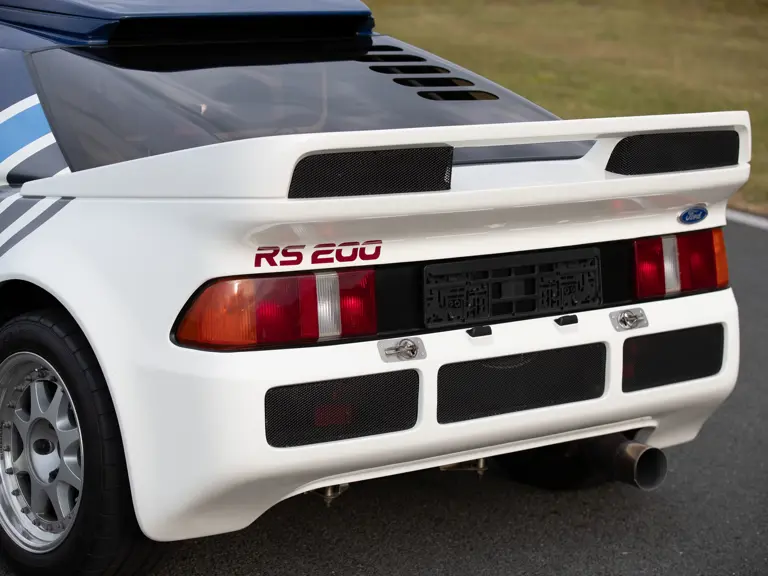
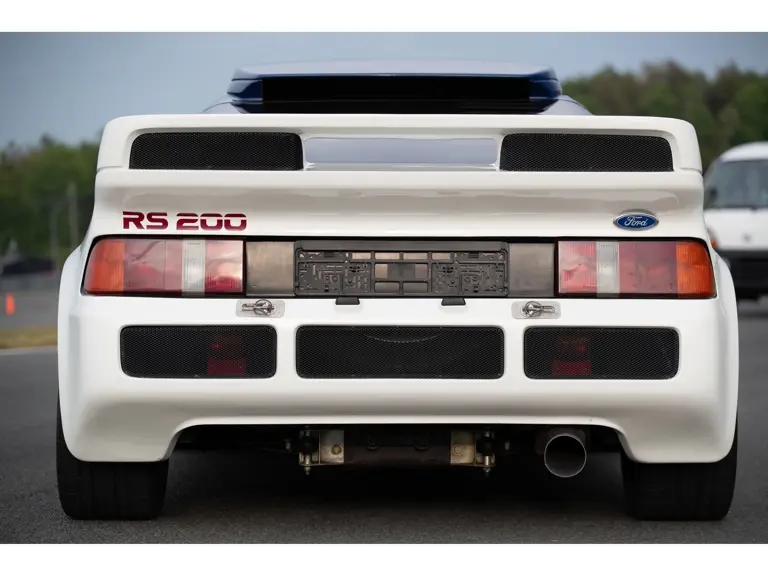
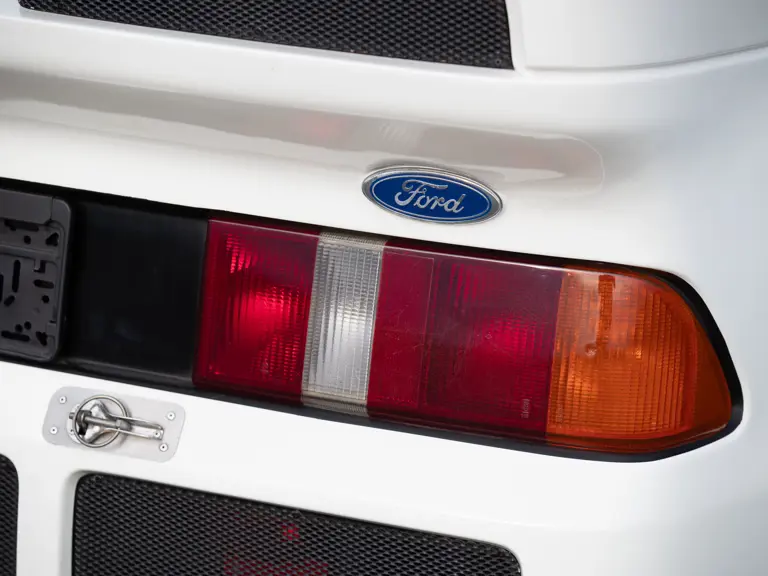
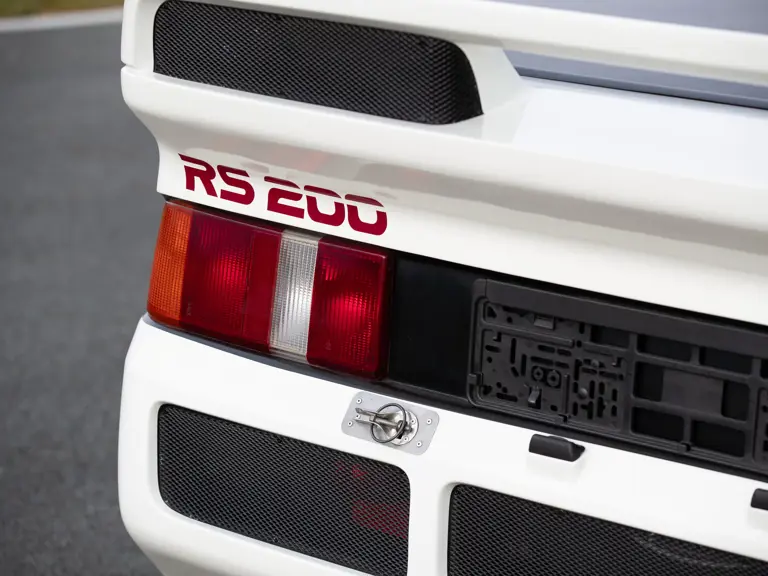
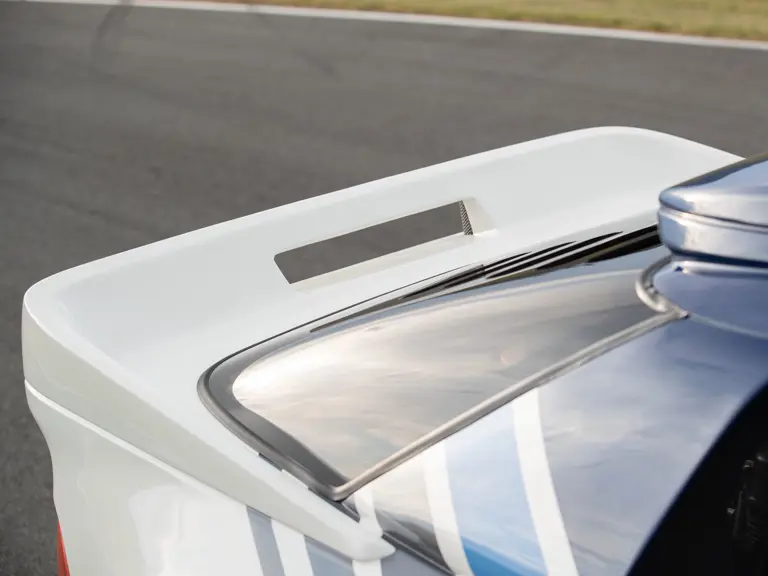
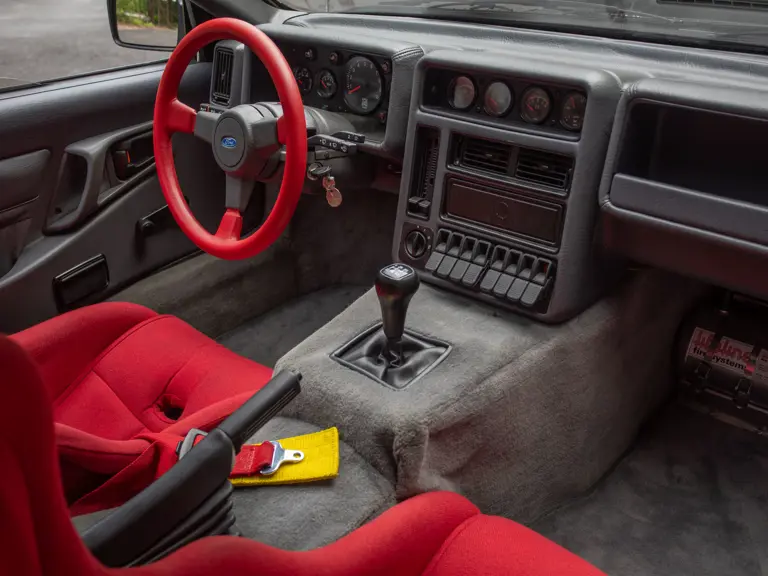
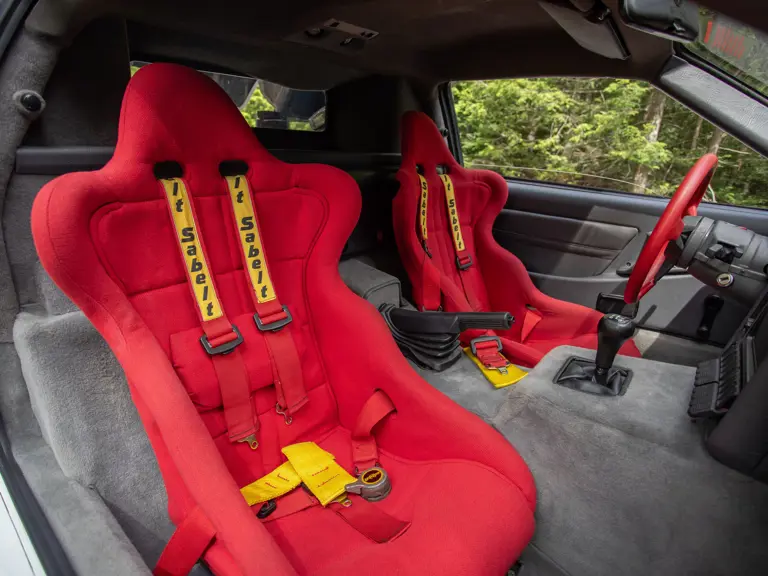
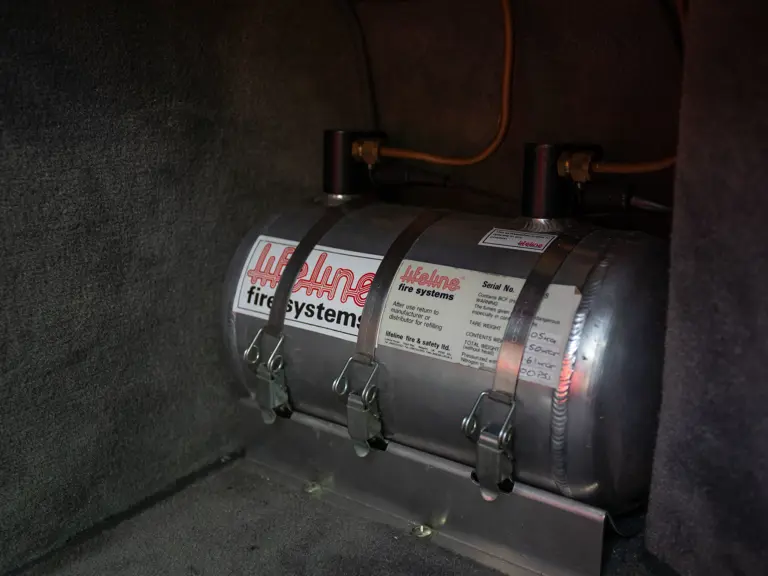
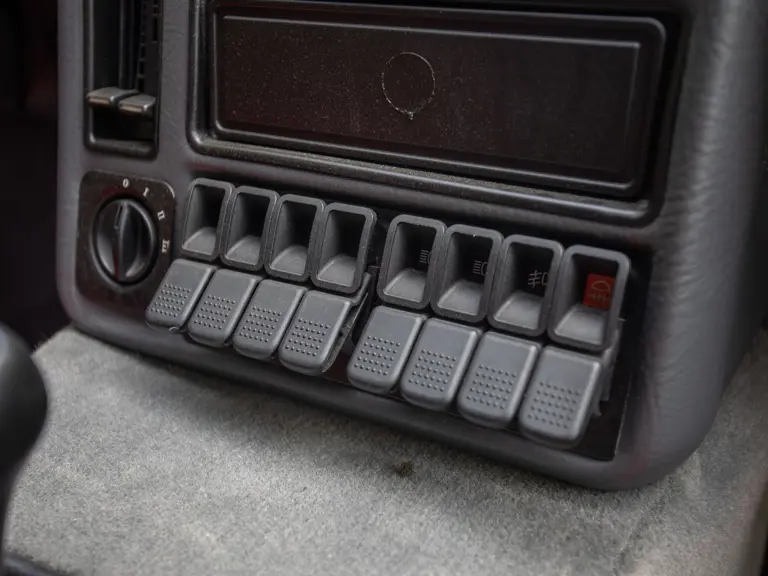
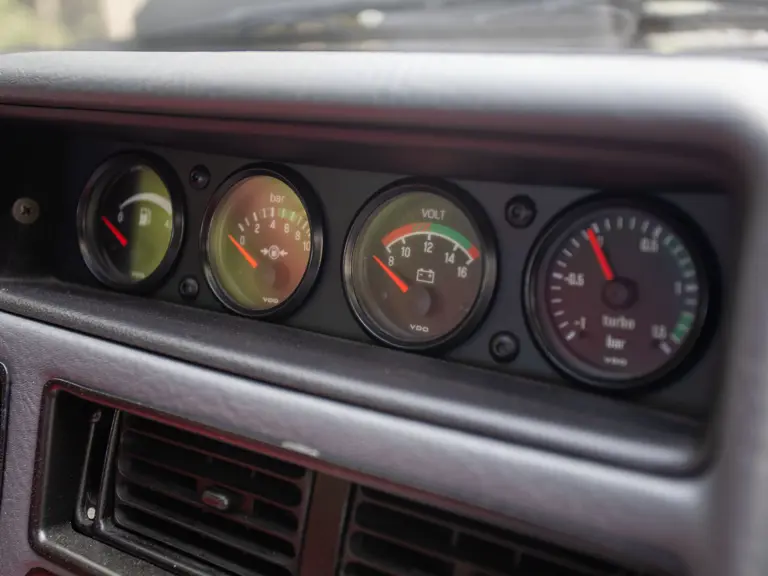
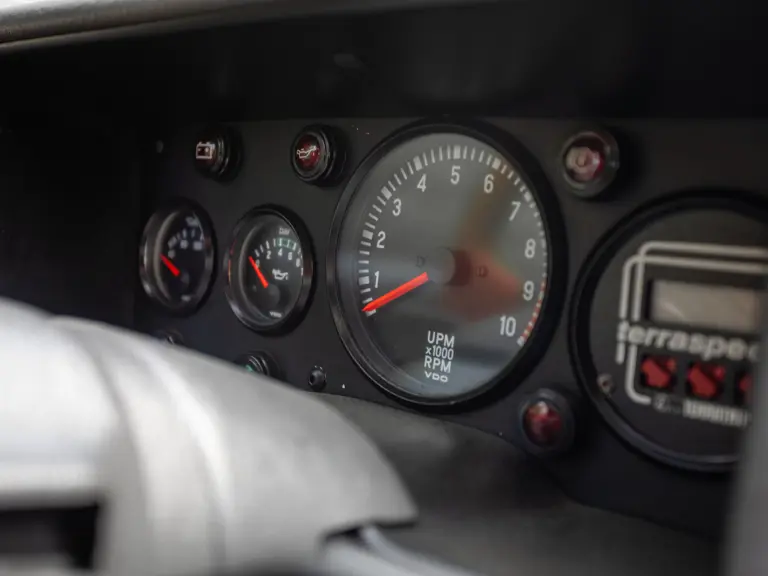
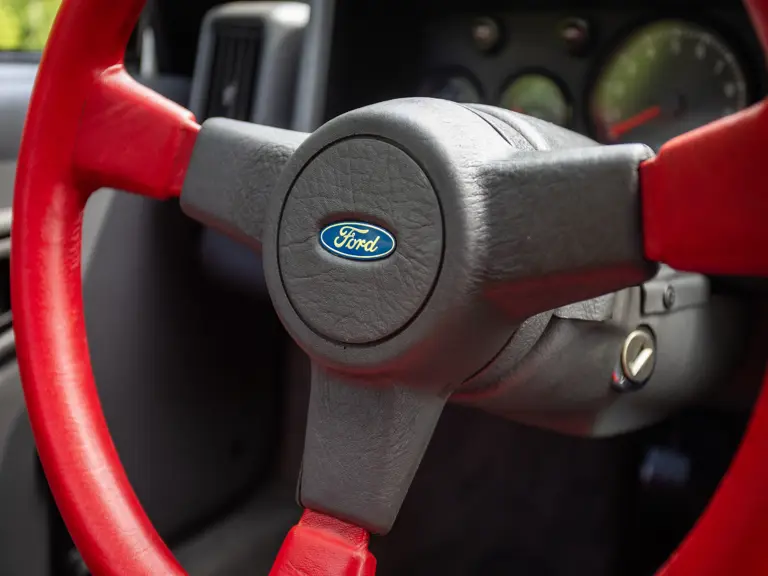

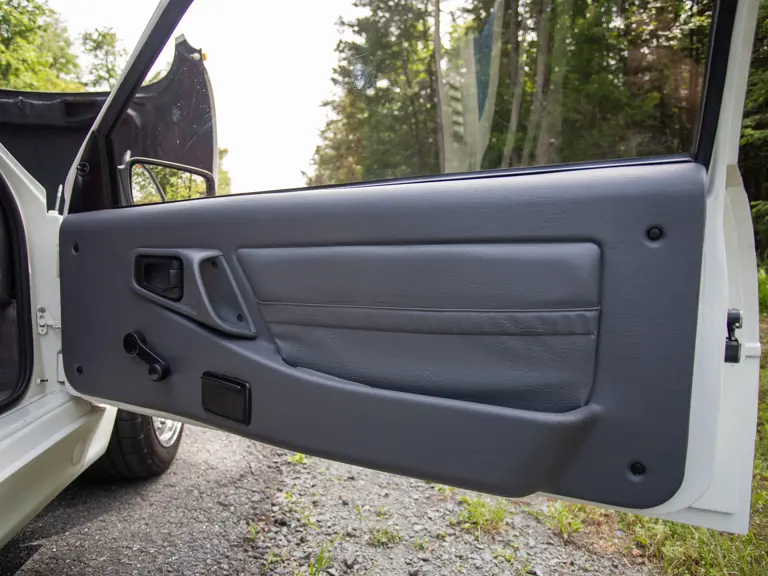
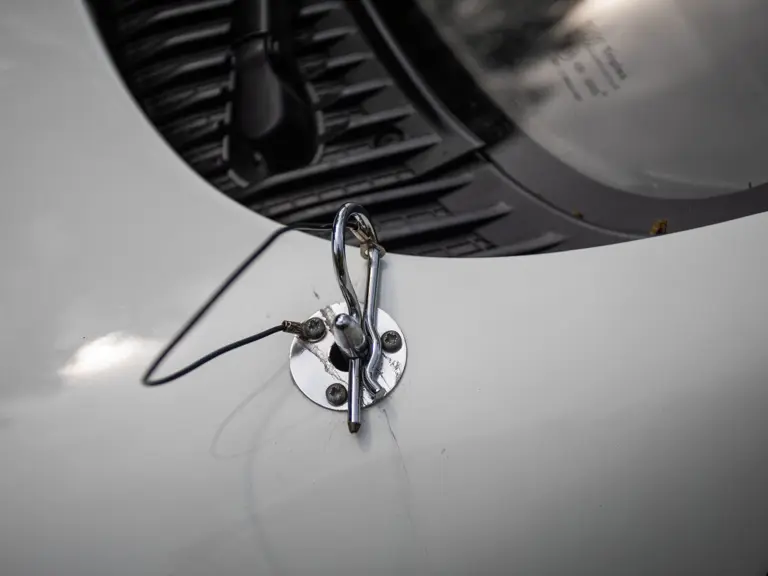
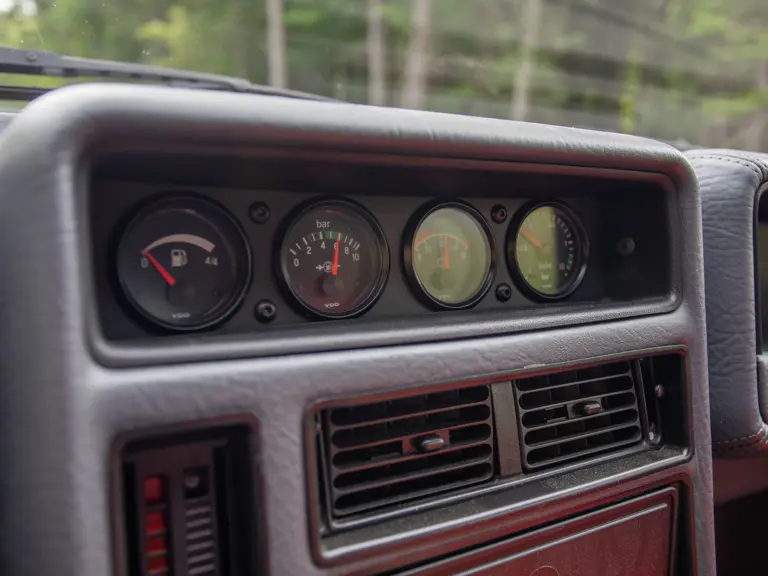
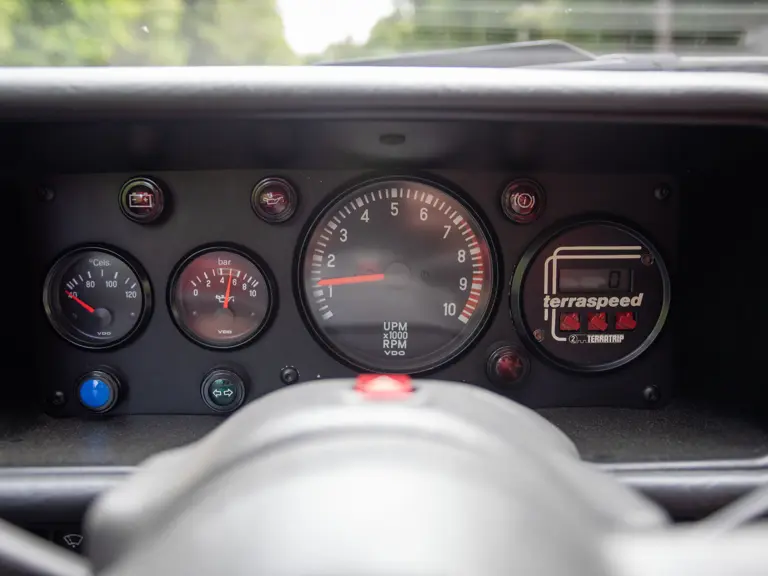
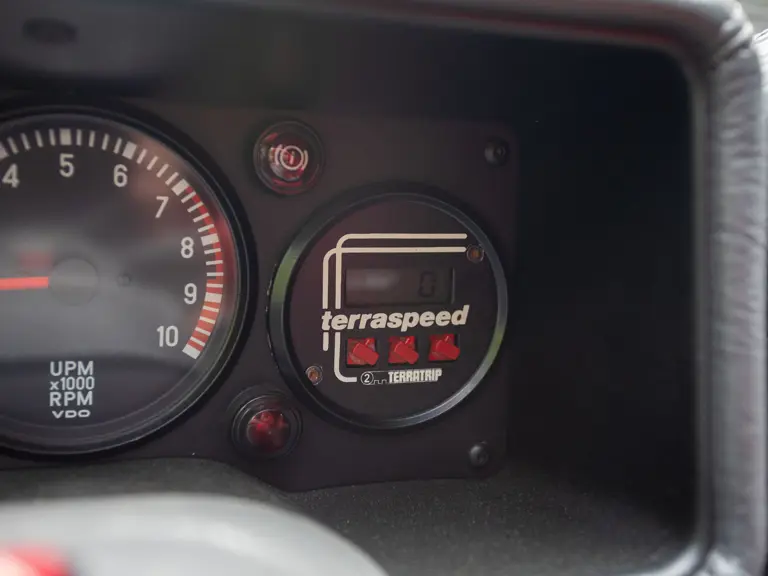
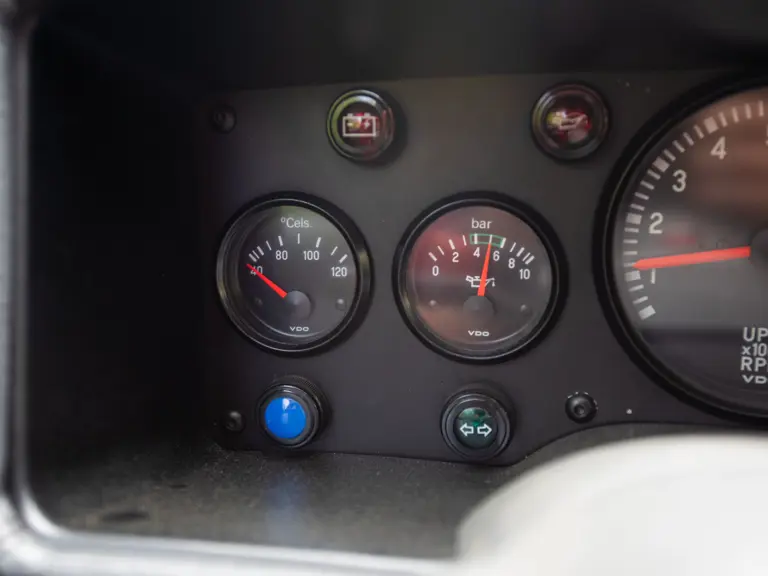
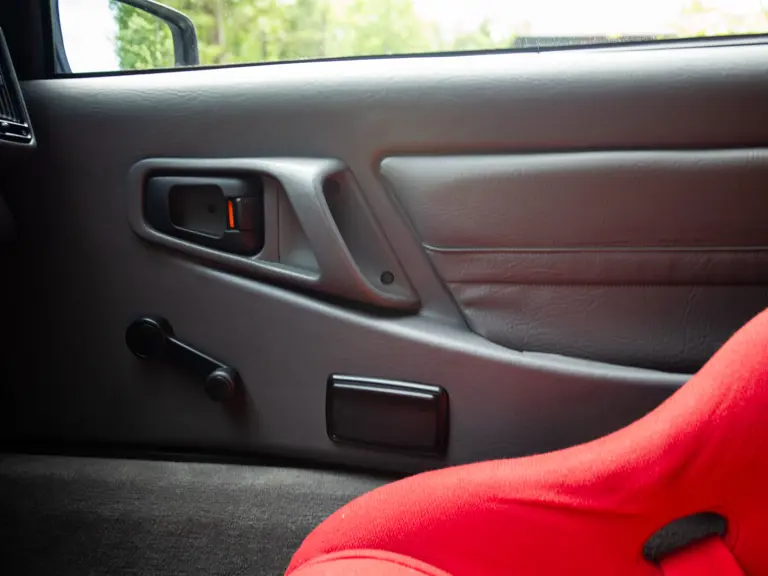
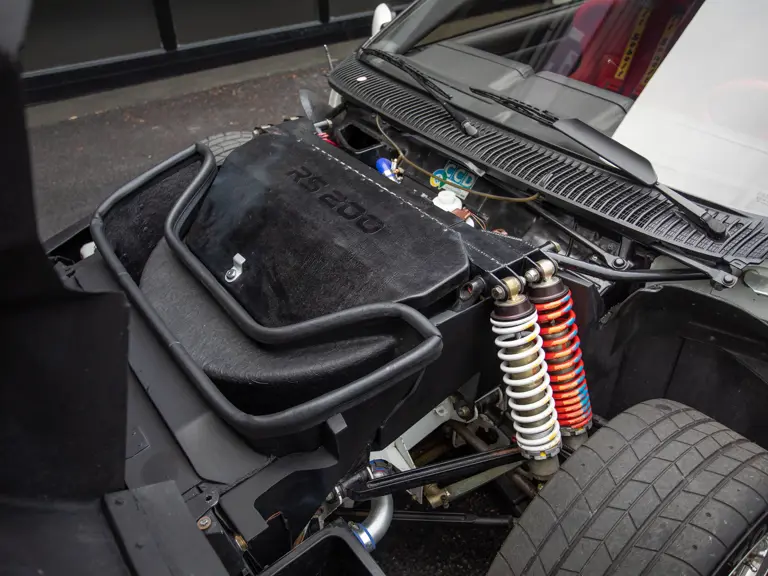
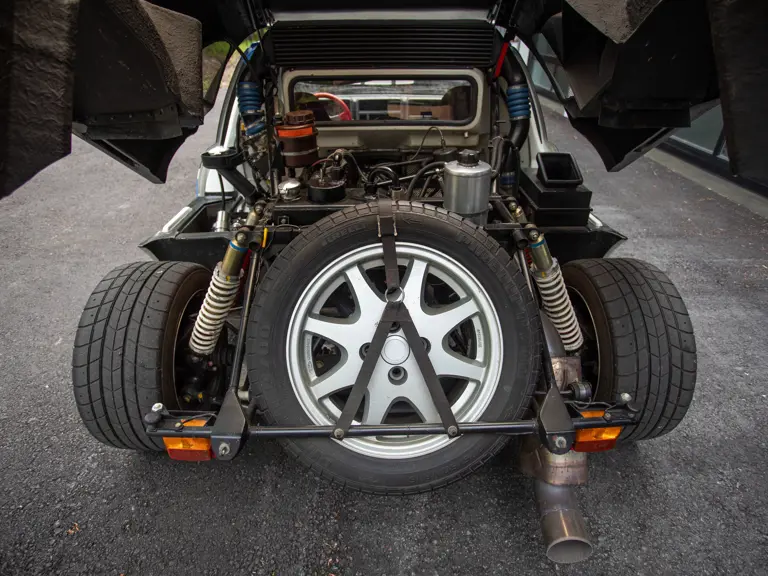
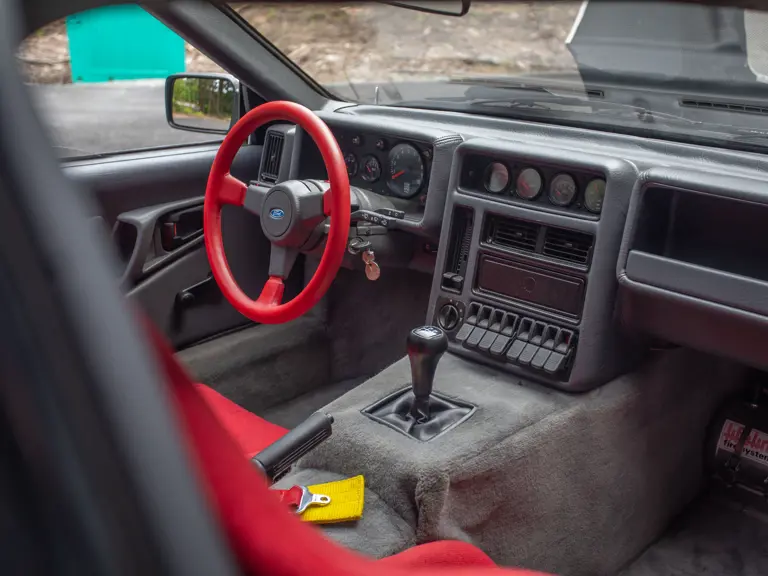
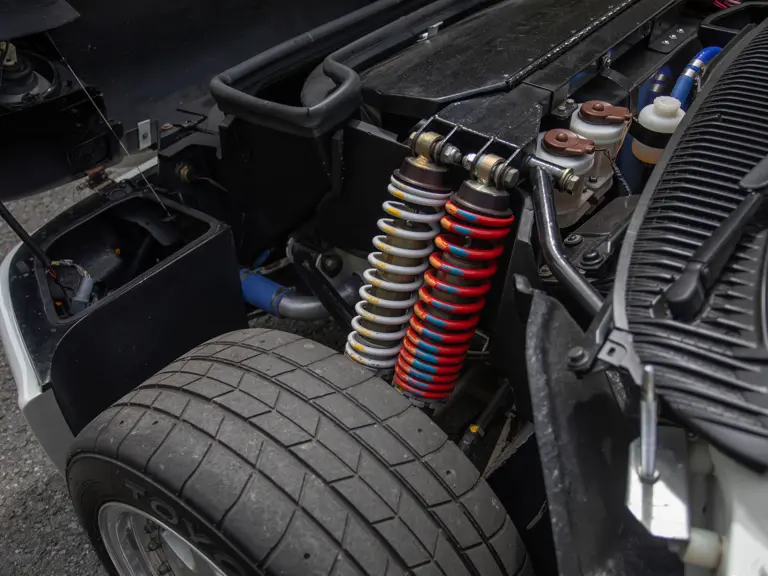
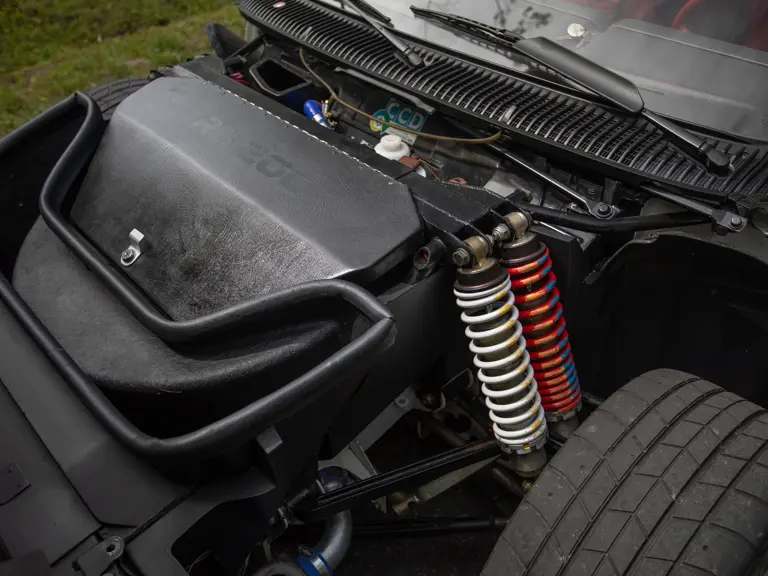
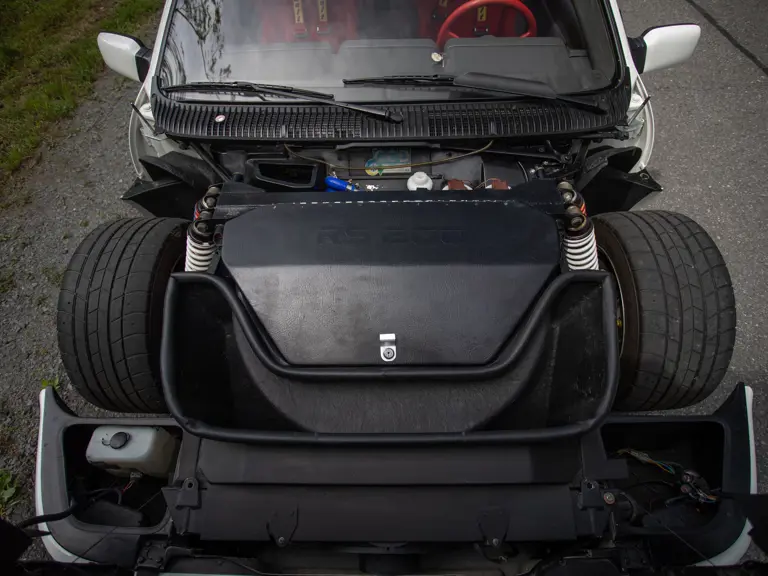

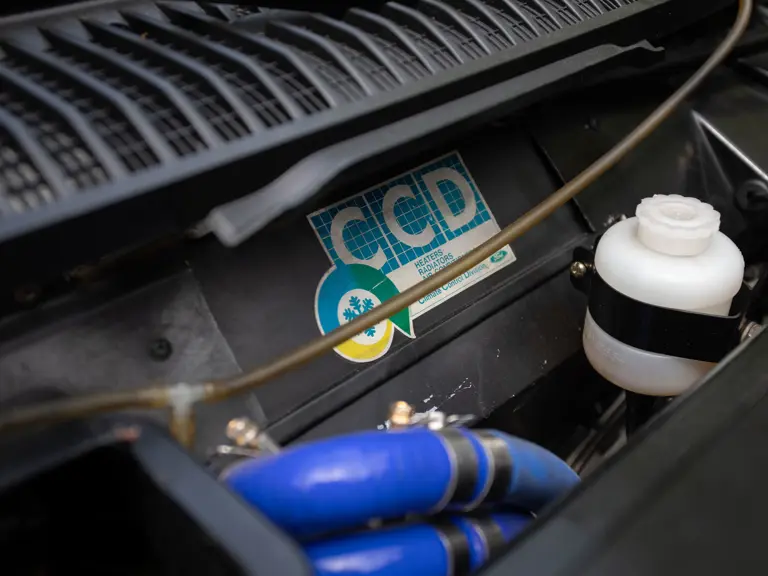
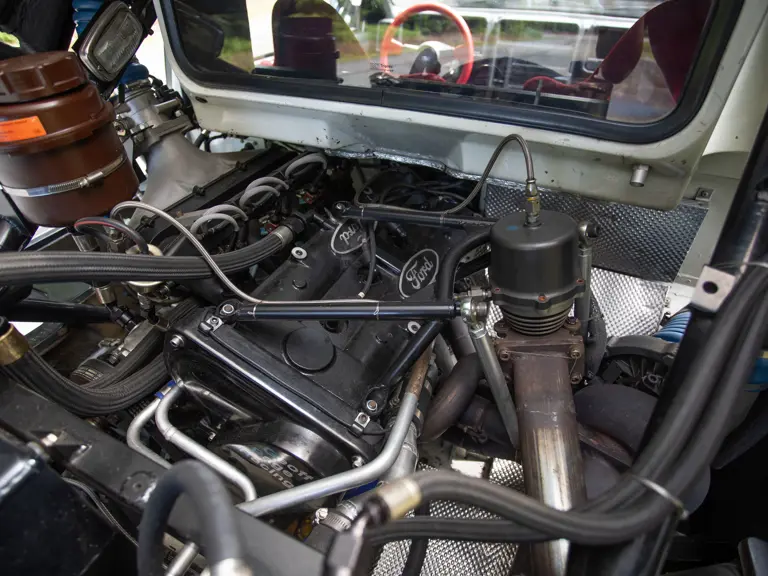
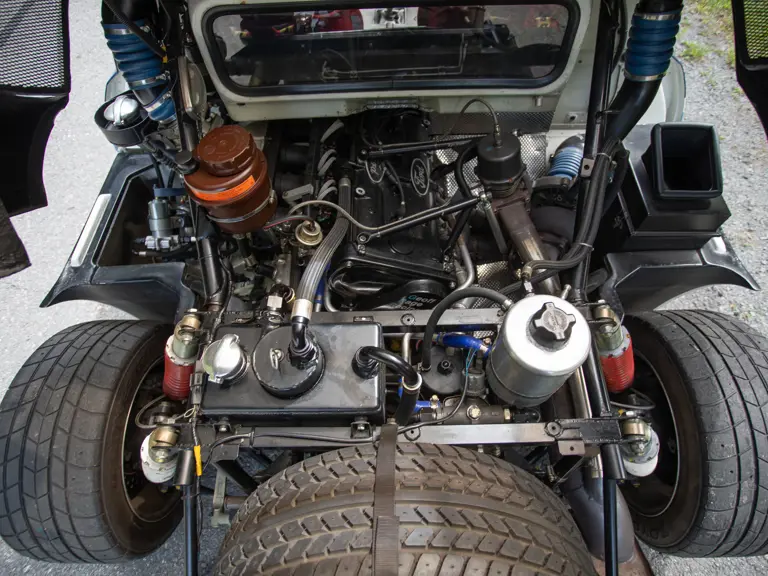
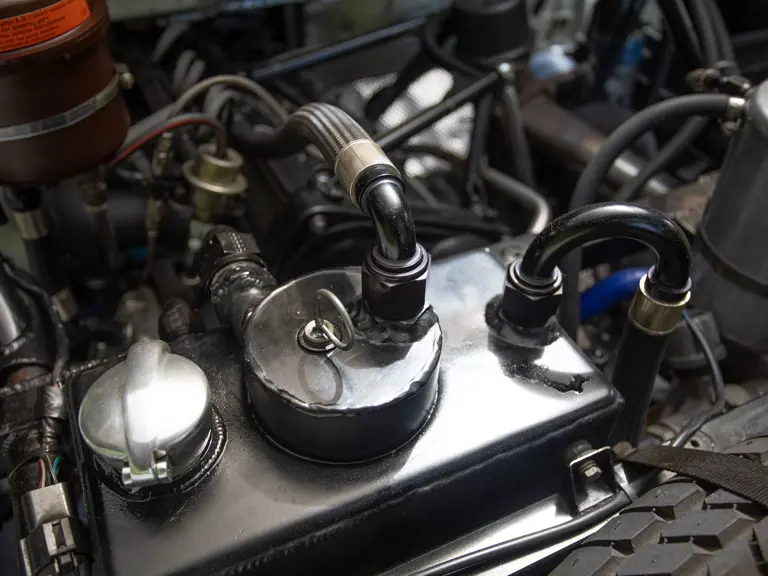
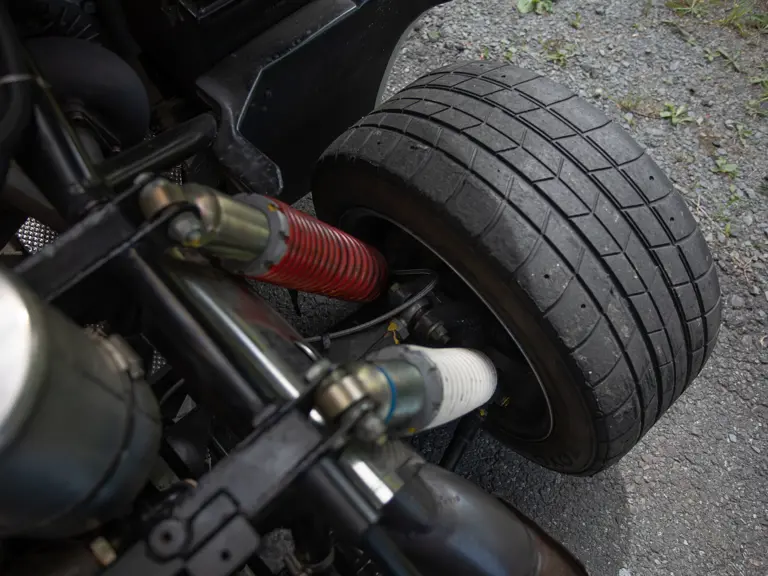
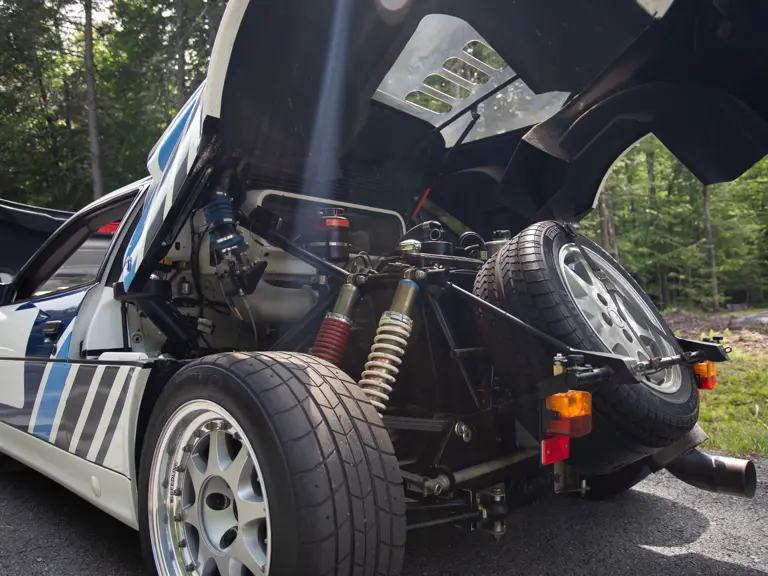
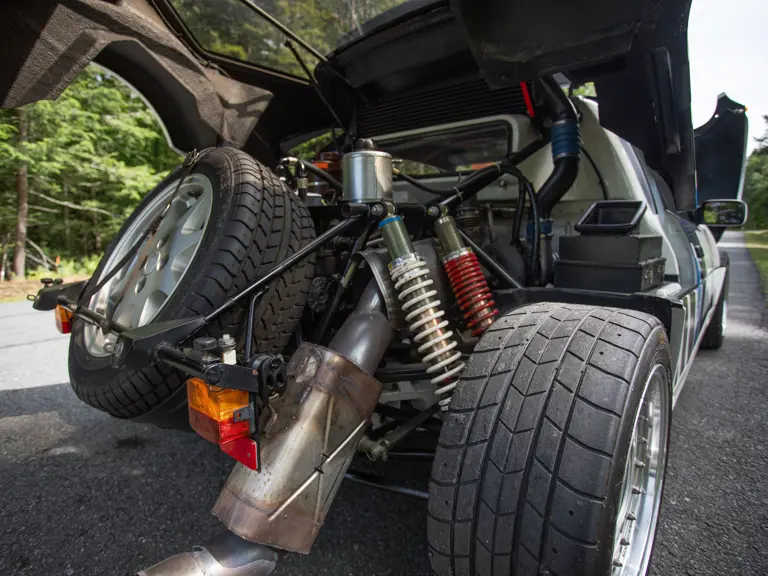
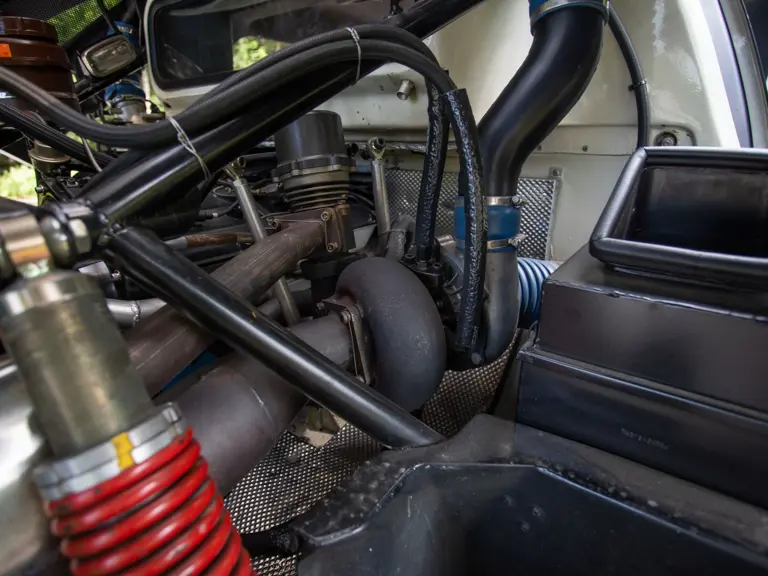
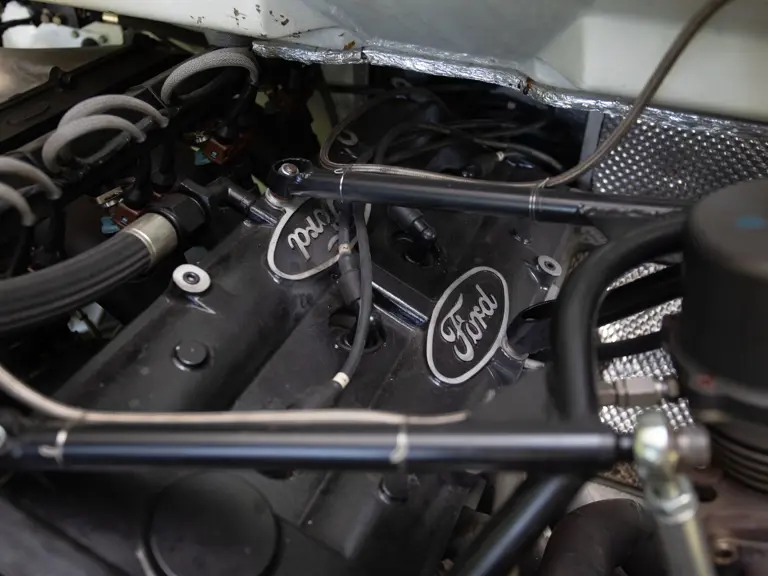
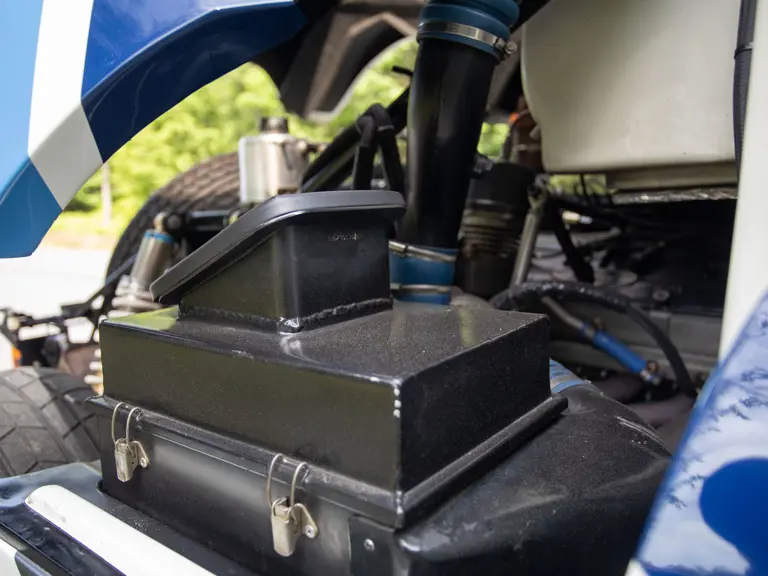
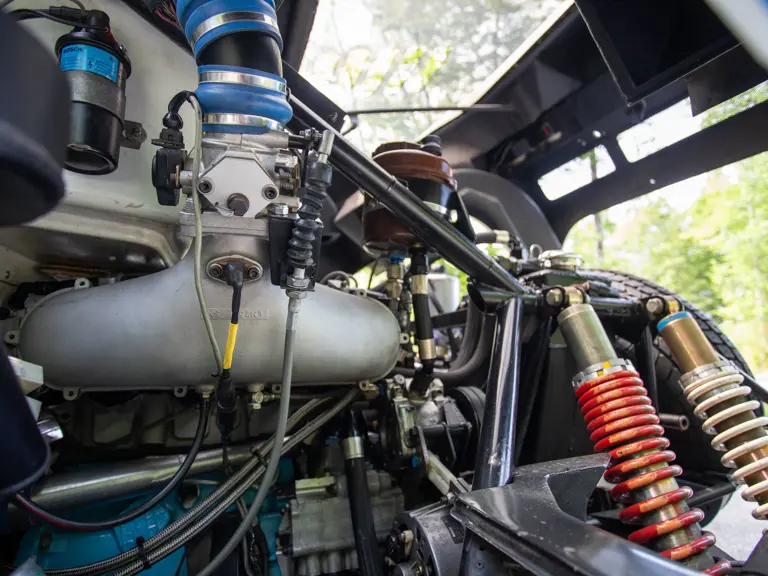
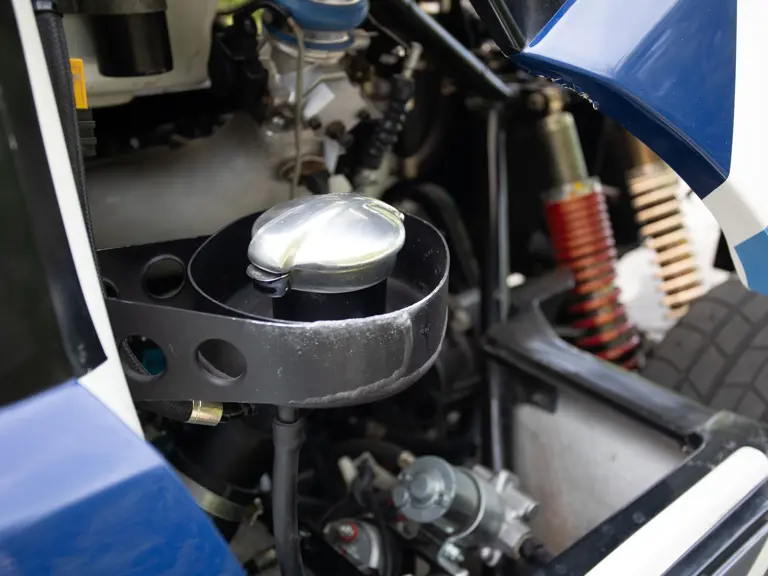
 | Monterey, California
| Monterey, California
